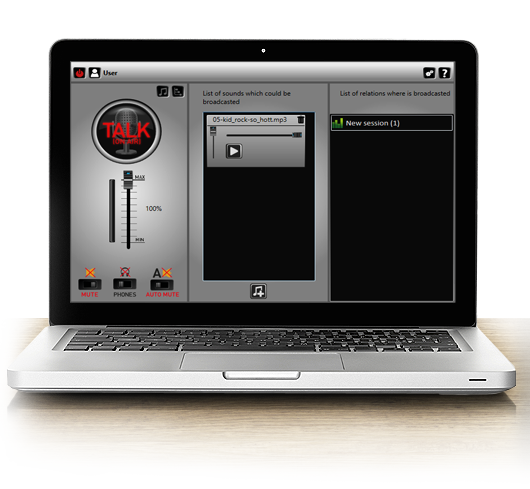

Ranging in price from $300 to $20,000, and running the gamut from home theater speaker ensembles to soundbars and subwoofers, we’re pretty sure one or more of these excellent systems will speak to you.Įnclave's CineHome PRO system brings full-tilt surround sound to TV and movie watchers who want more than a soundbar. To help you along that path, I’ve highlighted 17 of the best speaker systems our reviewers have auditioned in 2020 - all Sound & Vision Top Picks.
NETSOUND SPEAKERS UPGRADE
The good news is you can enjoy an immediate upgrade in performance by simply swapping out the offending squawkers.

These examples are extreme for sure, but the point is music and soundtracks played over good speakers can sound alarmingly real, causing you to flinch during a raucous chase scene and eliciting goosebumps during an intimate musical performance (Linda Ronstadt singing “Adios” does it for me every time). When an explosion sounds like a firecracker and dialogue sounds more like its coming from a ’60s-era transistor radio than a real voice, you know you have a problem. If a favorite album sounds shrill or lifeless, you can usually blame the speakers (assuming, of course, you’re not playing crappy, low bit-rate MP3 files). Sorry to be so blunt, but speakers - more than any other component in the audio chain - play a crucial role in shaping the tonal character of the music they’re reproducing. What does this mean for us as colleagues in a staff and what does it mean for schools as we seek participation in developing school plans, committees and after hours activities? This session will explore differences between generations and provoke thinking about ways in which teachers can work more effectively together.It’s pretty simple: If you don’t have good speakers, you don’t have a good sound system.

Generation Y teachers are confident and optimistic, need to be involved in decisions and seek job variety and creativity. Generation X teachers thrive on change, need to feel a sense of achievement and are seeking opportunities for career progression in a flexible work environment. Baby Boomer teachers are idealists with a strong work ethic that revolves around taking responsibility and achieving financial security. Marie has taught is a wide variety of settings and currently works with teachers and schools to focus on learning – whether that learning is by students, teachers, families or communities. He is currently on leave from MIT to help launch One Laptop per Child in Australia.ĭr Marie Martin is a teacher by birth, archetype, training and experience. In 2007 he was a keynote for the NZ Government’s Digital Future Summit, and in 2008 served on the Education advisory stream for Australia’s Future Summit. His several Music Synthesis languages are used around the world, and a variant of his Csound and NetSound languages has recently been adopted as the core of MPEG-4 audio – an international standard that enables efficient transmission of audio over the internet.īarry is an advisor to the One Laptop per Child (OLPC) initiative with a special interest in education of children of the Pacific. In 1985 Professor Vercoe was a founding member of the MIT Media Laboratory, where he has pursued research in Music Cognition and Machine Understanding. In 1992 he won the Computer World / Smithsonian Award in Media Arts and Entertainment, in 2004 gained the SEAMUS Lifetime Achievement Award, and in 2006 the World Academy of Science Distinguished Achievement Award.

Then on a Guggenheim Fellowship in Paris in 1983 he developed a Synthetic Performer - a computer that could listen to other performers and play its own part in musical sync, even learning from rehearsals. In 1968 at Princeton University he did pioneering work in the field of Digital Audio Processing, then taught at Yale University before joining the MIT faculty in 1971.ĭuring the ’70’s and early 80’s he pioneered the composition of works combining computers and live instruments. He was born and educated in New Zealand, attended Auckland Teachers College and taught in the New Zealand school system, then earned a doctorate in Music Composition at the University of Michigan in the USA. Opening Keynote Speaker: Professor Barry Vercoeīarry Vercoe is Professor of Music and Professor of Media Arts and Sciences at MIT, Boston.


 0 kommentar(er)
0 kommentar(er)
